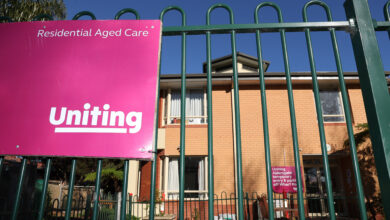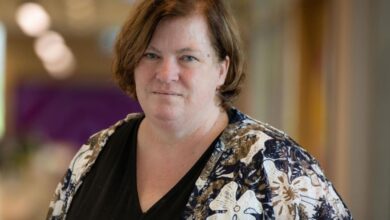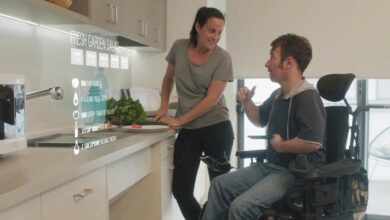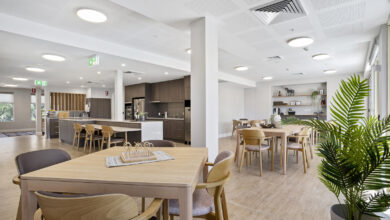How are religious aged cares preparing for voluntary assisted dying?

Voluntary assisted dying (VAD) laws are set to start in a month, yet many religious-based aged care facilities have not begun conversations or training.
After a marathon upper house debate last May, NSW became the last state to allow euthanasia for people suffering from terminal illnesses – with the law coming into effect on 28 November.
Despite the 18 months of consultation and preparation, the religious-based aged-care providers we contacted have not opened up the table to have conversations with staff, residents, and fellow executive members.
In August, a report was presented to the Anglican Church's Synod advising its aged care homes to discourage residents from accessing the VAD and adopt the bare minimum compliance of the act by allowing residents to access qualified doctors.
The report also stated the practice could be highly "morally corrupting" for church-run facilities and that it may have to exit the sector.
"The report challenges Anglicare Sydney to respectfully, in compliance with the law, seek to dissuade residents from accessing VAD by 'deed and word'," it said.
"The Board of Anglicare Sydney decided … VAD will not be available at its residential aged care homes, and the organisations and staff will not actively participate in the provision of any VAD services."
"It should be recognised that the existence of VAD may well become an intolerable corruption to the service, thus precipitating the need for withdrawal from residential aged care provision in the future."
However, when Aged Care Insite reached out to Anglicare, a spokesperson said Anglicare is not leaving the sector, and the "media blew it out of proportion".
"The paper was delivered and put on the table, but the option was that Anglican aged care is not practical with the laws," the spokesperson said.
"We are not leaving the industry."
Anglicare's spokesperson continued to say staff were "terribly prepared for something [they] don't know".
"We will be obliging with residents who want to access VAD to contact medical practitioners, but we will not be participating."
Sri Om Care, a Hindu-based home care provider in western Sydney, is the only aged care provider that bases its care on the teachings of Hinduism.
In the religion, euthanasia is allowed as Hindus believe helping to end the painful life of a person is performing a good deed, thus fulfilling their moral obligations.
Service manager at Sri Om Care, Aarthi Vasudevan, said the facility did not have much of a role to play once VAD laws commence.
"We will not oppose it, and if someone reaches out, we will help and send them to the relevant authorities," Ms Vasudevan told Aged Care Insite.
For many families at Sri Om Care, Ms Vasudevan said death and pain were personal and cultural things they did not want to step in unless they asked for help.
"Usually, the older people keep the feelings of wanting to die and being in pain to themselves or within the family," she said.
"It stems from culture, honestly."
Ms Vasudevan said despite not having any conversations, staff felt prepared on what to do.
"We haven't really heard of and had any conversations with staff about this … but if someone reaches out, we will help."
Aged Care Insite contacted Montefiore, a Jewish-based aged care provider, with a spokesperson saying they "will not be available for a comment at this stage as we are currently consulting with the various stakeholders".
Islam-based providers Gallipoli Home and MuslimCare also declined to comment.
Email: [email protected]






One Comment